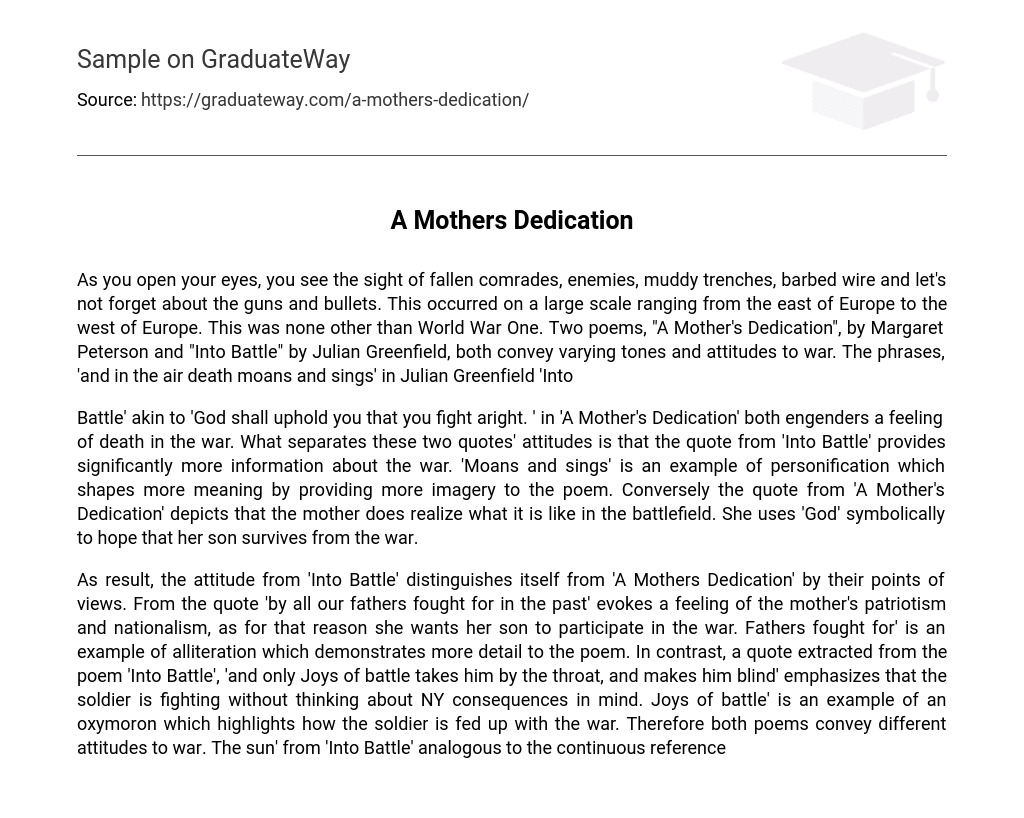As you open your eyes, you see the sight of fallen comrades, enemies, muddy trenches, barbed wire and let’s not forget about the guns and bullets. This occurred on a large scale ranging from the east of Europe to the west of Europe. This was none other than World War One. Two poems, “A Mother’s Dedication”, by Margaret Peterson and “Into Battle” by Julian Greenfield, both convey varying tones and attitudes to war. The phrases, ‘and in the air death moans and sings’ in Julian Greenfield ‘Into
Battle’ akin to ‘God shall uphold you that you fight aright. ‘ in ‘A Mother’s Dedication’ both engenders a feeling of death in the war. What separates these two quotes’ attitudes is that the quote from ‘Into Battle’ provides significantly more information about the war. ‘Moans and sings’ is an example of personification which shapes more meaning by providing more imagery to the poem. Conversely the quote from ‘A Mother’s Dedication’ depicts that the mother does realize what it is like in the battlefield. She uses ‘God’ symbolically to hope that her son survives from the war.
As result, the attitude from ‘Into Battle’ distinguishes itself from ‘A Mothers Dedication’ by their points of views. From the quote ‘by all our fathers fought for in the past’ evokes a feeling of the mother’s patriotism and nationalism, as for that reason she wants her son to participate in the war. Fathers fought for’ is an example of alliteration which demonstrates more detail to the poem. In contrast, a quote extracted from the poem ‘Into Battle’, ‘and only Joys of battle takes him by the throat, and makes him blind’ emphasizes that the soldier is fighting without thinking about NY consequences in mind. Joys of battle’ is an example of an oxymoron which highlights how the soldier is fed up with the war. Therefore both poems convey different attitudes to war. The sun’ from ‘Into Battle’ analogous to the continuous reference





